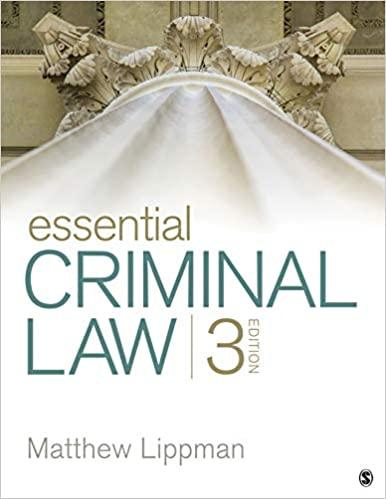Question
36. The by-laws of the religious corporation provides that a member may be expelled from the society even without prior notice and hearing is this
36. The by-laws of the religious corporation provides that a member may be expelled from the society even without prior notice and hearing is this valid?
A. Yes because the basis of membership in a religious organization is absolute adherence to a common religious or spiritual belief and as a general rule there is no room for dissention in a religious organization. B. No because it is unusual and objectionable.
No because it is oppressive and unreasonable.
No under all instances.
37. After the dissolution of a corporation, what is the remaining period of the corporate body?
2 years from the time it is dissolved for the purpose of liquidation of its corporate affairs but not for entering into new business.
3 years from the time it is dissolved for the purpose of liquidation of its corporate affairs but not for entering into new business.
1 years from the time it is dissolved for the purpose of liquidation of its corporate affairs but not for entering into new business.
4 years from the time it is dissolved for the purpose of liquidation of its corporate affairs but not for entering into new business.
38. Which of the following matters must be provided in the Articles in Corporation instead of By-Laws?
Denial of pre-emptive right
Creation of executive committee
Provision on compensation of directors
Provision on additional corporate officers
39. In which of the following corporate acts is appraisal right not available to a dissenting stockholder?
Incurring or increasing bond indebtedness
Shortening or extending corporate term
Sale, disposal, pledge or mortgage of all or substantially all the assets
Investment of corporate funds to other business different from the primary and secondary purpose
40. Under Revised Corporation Code, the following are the corporations vested with public interest that are required to have independent directors in its Board of Directors, except
Corporations covered by Section 17.2 of "Securities Regulation Code" namely those whose securities are registered with SEC, corporations listed with an exchange (PS E) or with assets of at least P50,000,000 and having 200 or more shareholders, each holding at least 100 shares of a class of its equity shares.
Banks and quasi-banks, non-stock savings and loan associations, pawnshops, corporations engaged in money service business, preneed, trust and insurance companies, and other financial intermediaries
Other corporations engaged in business vested with public interest similar to the above, as may be determined by the SEC, after taking into account relevant factors which are germane to the objective and purpose of requiring the election of an independent director, such as the extent of minority ownership, type of financial products, or securities issued or offered to investors, public interest involved in the nature of business operations, and other analogous factors.
Closely-held corporation or family-owned corporation or One Person Corporation (OPC).
Step by Step Solution
There are 3 Steps involved in it
Step: 1

Get Instant Access to Expert-Tailored Solutions
See step-by-step solutions with expert insights and AI powered tools for academic success
Step: 2

Step: 3

Ace Your Homework with AI
Get the answers you need in no time with our AI-driven, step-by-step assistance
Get Started


